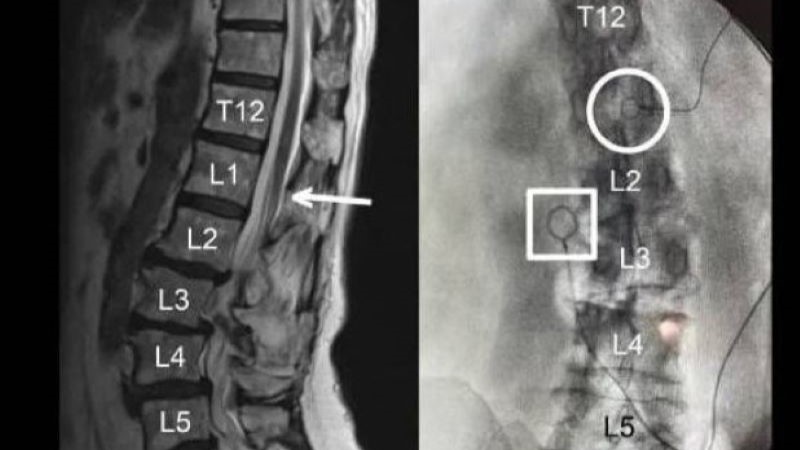
The majority of patients who underwent lumbar disc herniation surgery were satisfied in a new study.
“Lumbar disc herniation (LDH) is one cause of sciatica, and the disability creates not only individual suffering, but also, with a prevalence of 1–3%, also significant costs for society,” explained the study authors. “Most LDH patients are treated non-operatively, but surgery may be an option, with absolute indication cauda equine syndrome and relative progressive neurological deficits, intractable pain and/or sciatica that do not respond to non-operative management. The outcome of surgery is well described in young and middle age adults, less in elderly.”
To that end, the researchers explored outcomes among patients aged older than 65 years, identified using the national Swedish register for spinal surgery (SweSpine). Patients underwent lumbar disc herniation surgery between 2000 and 2016 and had pre- and one-year postoperative data available, including age, sex, preoperative duration and degree of back and leg pain, quality of life (36-Item Short Form Survey [SF-36]), and one-year satisfaction (dissatisfied, uncertain, or satisfied).
Final analysis included 2,095 patients (mean age [range], 71.5 [65-91] years; 52% were male), of whom 1,495 (71%) were satisfied, 380 (18%) were uncertain, and 220 (11%) were dissatisfied one year postoperatively. Compared to patients who were unsatisfied or uncertain, those who reported postoperative satisfaction were younger and had a shorter preoperative duration of leg pain, higher SF-36 mental component score, and more leg pain than back pain (P<0.01 for all). Among patients with leg pain up to three months, 81% were satisfied, compared to 57% of patients with leg pain longer than two years (P<0.001).
Factors associated with postoperative dissatisfaction included older age, longer duration of preoperative leg pain, and lower preoperative SF-36 scores compared to patients who were satisfied or uncertain (P<005 for all).
Complications also affected satisfaction; 56% of patients with registered complications reported postoperative satisfaction, while 23% were uncertain and 21% were dissatisfied, while among patients without registered complications, 73% were satisfied, 18% were uncertain, and 10% were dissatisfied. About three-quarters of open discectomy patients (73%) were satisfied, 18% were uncertain, and 10% were dissatisfied. Among laminar decompression patients, 67% were satisfied, 19% were uncertain, and 15% were dissatisfied; for various other surgery types, 69% of patients were satisfied, 21% were uncertain, and 10% were dissatisfied.
The study was published in BMC Musculoskeletal Disorders.
“Age, preoperative duration of leg pain, preoperative SF-36 scores, and for satisfaction also leg pain dominance, are also in elderly factors that on group level are associated with subjective [surgery] outcome,” concluded the authors. “Gender and smoking habits were, in comparison to as being reported in middle ages adults, not associated with outcome. We found more satisfied patients if duration of preoperative leg pain was no more than 12 months rather than longer.”







 © 2025 Mashup Media, LLC, a Formedics Property. All Rights Reserved.
© 2025 Mashup Media, LLC, a Formedics Property. All Rights Reserved.